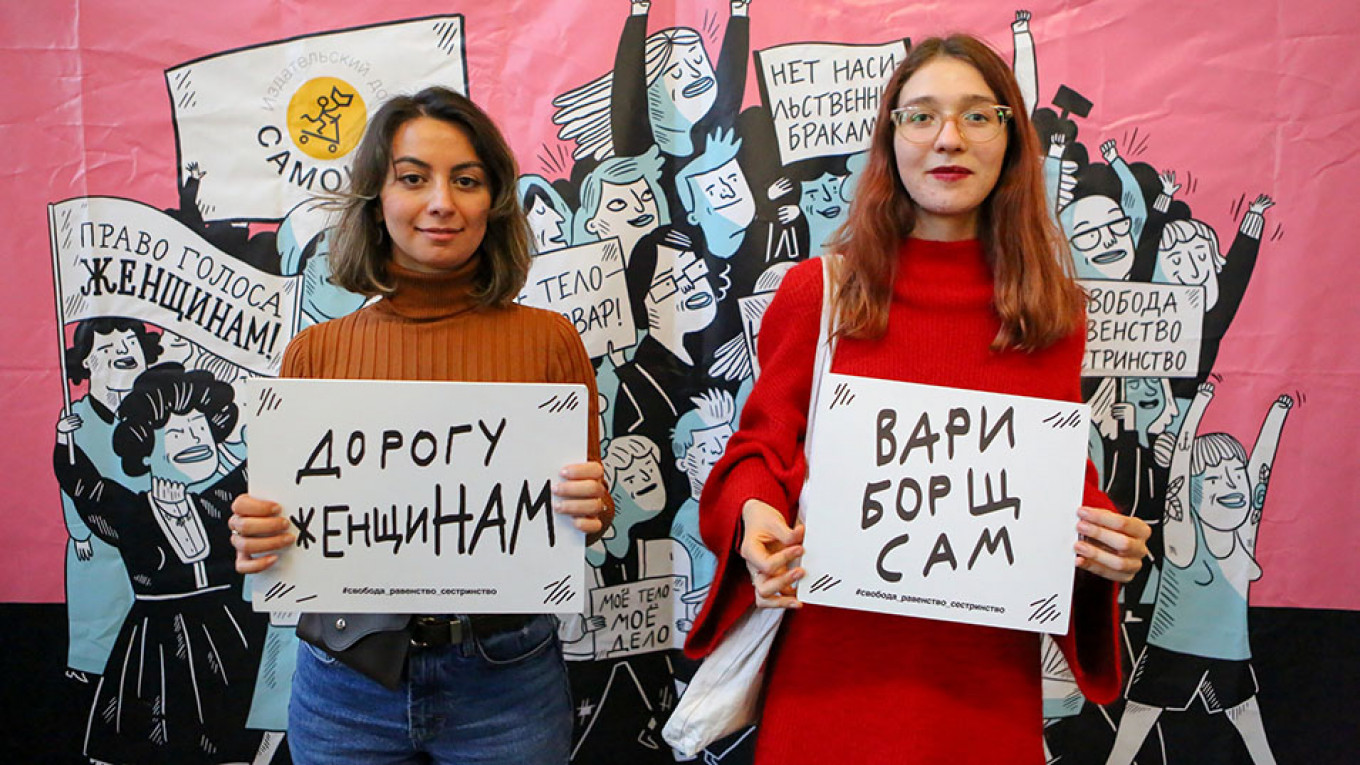
Russia’s gender equality has become worse compared to that of other countries since last year, according to the Global Gender Gap Index ranking published by the World Economic Forum (WEF) on Monday.
Published annually since 2006, the Global Gender Gap Index tracks the equality of men and women in 153 countries in four categories: economic participation and opportunity, educational attainment, health and survival and political empowerment.
Russia fell six spots on the index, from 75th last year to 81st this year, placing between El Salvador and Ethiopia.
Within each of the index’s four categories, Russia ranked 24th in education, 27th in healthcare, 32nd in economic equality and 122nd in political involvement.
According to the report, Russian women are slightly more educated than men, with 89% of female high school graduates enrolled in secondary education versus 75% of male graduates. Women in Russia also live eight years longer than men on average.
Despite its good ratings for education and health, Russian women face income disparities and seldom achieve positions of leadership, the report says. The share of women among managers and senior government officials in Russia is 41.8%, while the share of women board members at companies is just 7%.
Russia’s political empowerment of women is the worst out of its four ratings. In Russia — as well as in 84 other countries including the U.S., Italy and the Netherlands — there has never been a woman as a head of state. Women ministers (12.9%) and parliamentarians (15.8%) are also a small minority in Russia’s government.
“Despite the fact that Russian society provides women with broad access to education and some segments of the labor market, a glass ceiling is preventing most of them from accessing positions of power either in politics or in the business sector,” the report says.
Based on the current rate of change, it will take another century for the world to achieve gender parity, World Economic Forum founder and executive chairman Klaus Schwab said.
“Without the equal inclusion of half of the world’s talent, we will not be able to deliver on the promise of the Fourth Industrial Revolution for all of society, grow our economies for greater shared prosperity or achieve the UN Sustainable Development Goals,” Schwab wrote.

Leave a Reply